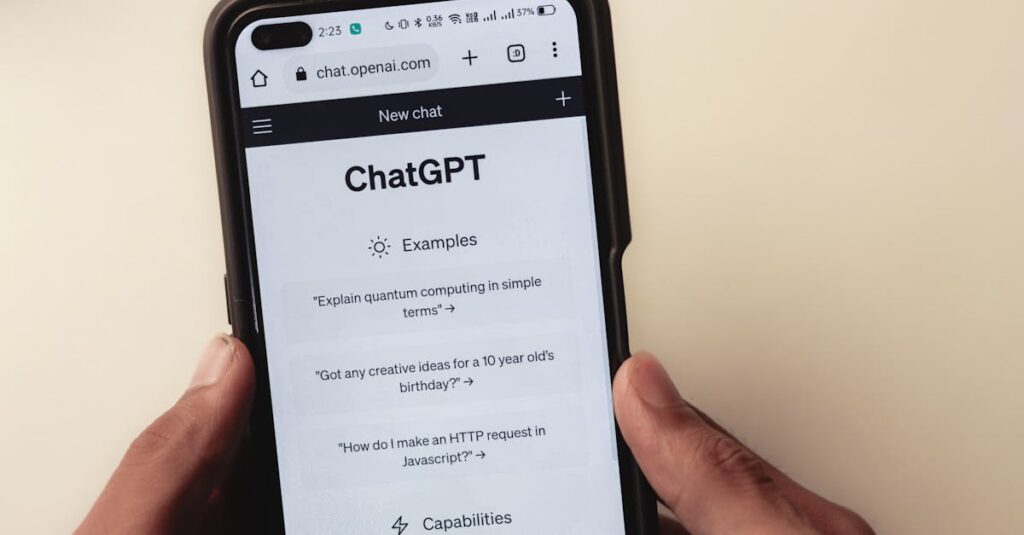Introduction: AI’s Impact on Marketing
Generative AI isn’t just a buzzword anymore—it’s reshaping how companies connect with their audiences. From personalized customer experiences to content creation that feels human, this technology has started to change the marketing game. But how exactly is AI transforming marketing, and what does this mean for businesses trying to stay ahead of the curve? Let’s explore how generative AI is making a big impact.
The Power of Personalization
Imagine you walk into a store and the salesperson immediately greets you by name, recommending products tailored to your preferences. It feels pretty special, right? That’s the kind of personalized experience generative AI is bringing to digital marketing. AI can analyze customer data, predicting their preferences and offering tailored content, ads, and products that feel incredibly relevant.
Take Netflix, for example. Their recommendations engine uses AI to predict what you might like based on what you’ve watched before. It’s not just a simple list of similar titles—it’s curated with advanced algorithms that take your mood, browsing habits, and viewing patterns into account. That’s a level of personalization that feels almost human, and it’s driven entirely by AI.
Dynamic Ad Creation
Gone are the days of static ads that feel like they were created once and left to run forever. With generative AI, marketers can create ads that adapt to different audiences and even change in real-time based on user behavior. For instance, if someone interacts with an ad for a certain type of product, AI can generate a new ad featuring that product, further personalized with messaging based on past behaviors.
Brands like Adidas are already testing AI-powered ad creative that’s tailored to a person’s location, interests, and previous interactions with the brand. The more AI learns about the user, the more effective the messaging becomes, and the better the chances of converting that potential customer into a loyal one.
AI’s Role in Content Creation
Creating content that resonates with audiences is crucial for any brand, but it’s no secret that it’s a time-consuming process. With generative AI, however, the process becomes faster and smarter. Imagine a tool that can generate blog posts, social media content, product descriptions, and even emails—all personalized to fit the tone and needs of a specific audience.
Take the fashion industry, for example. Brands like Stitch Fix use AI to create personalized outfit recommendations for customers. Their system analyzes customer preferences, body types, and current trends to offer style suggestions. What’s more impressive is that AI-generated content for product descriptions and marketing copy can be seamlessly integrated into their workflow, making marketing efforts more efficient and cost-effective.
AI for Social Media Strategy
Social media marketing has always been a place where the personal connection between a brand and its audience matters. AI tools can now help brands optimize their social media strategies by analyzing user sentiment, engagement patterns, and trending topics. With AI-generated content, brands can stay relevant with posts that are timely, engaging, and even predictive of what their followers might want to see next.
Consider how brands like Coca-Cola have used AI to create social media campaigns that tap into current cultural moments. AI can analyze social conversations in real-time and suggest posts that align with ongoing trends or even predict when a topic might go viral. This allows companies to stay ahead of the curve, crafting content that hits the right note before the competition does.
Generative AI in Customer Service
We’ve all encountered chatbots that seem a little robotic. But thanks to generative AI, that’s changing fast. AI-powered chatbots now have the ability to generate human-like responses that are contextually relevant and offer real-time assistance to customers. These systems aren’t just responding with pre-programmed answers—they’re engaging in natural conversations and can even adjust their tone based on the customer’s needs.
Take Sephora, for example. Their AI-powered chatbot not only helps customers navigate product recommendations but also provides personalized beauty tips. By leveraging generative AI, brands like Sephora can create a unique experience where customers feel like they’re speaking to a personal assistant who understands their preferences and needs. This is a major shift from traditional customer service interactions and shows how AI can create more meaningful relationships between brands and consumers.
Generating Insights with AI
AI’s ability to analyze massive datasets and generate insights is another game-changer. Marketers have always relied on data to inform decisions, but with generative AI, the process becomes much more efficient. AI can sift through mountains of data to provide insights that go beyond what humans can process, offering actionable recommendations that can improve marketing strategies.
For example, tools like HubSpot use AI to analyze email marketing campaigns and suggest improvements based on open rates, click-through rates, and customer behavior. With AI, marketers can optimize their campaigns, ensuring they’re targeting the right audience with the right message at the right time—without manually sorting through data.
The Future of Generative AI in Marketing
The future of generative AI in marketing is looking bright. With the rapid advancements in AI technology, we’re likely to see even more sophisticated applications of AI in the marketing world. Brands will continue to experiment with personalized experiences, dynamic content generation, and AI-powered customer interactions that feel natural and genuine.
But it’s not all about the technology itself—brands must still prioritize the human element in their marketing strategies. While AI can help with personalization, content creation, and customer service, it’s the human creativity behind the scenes that will truly drive marketing success. AI should be seen as a tool that complements and amplifies human efforts rather than replacing them entirely.
Key Takeaways
- Personalization is one of the biggest benefits of generative AI, offering customers tailored experiences based on their preferences.
- Dynamic content and ads powered by AI help brands stay relevant and connect with the right audience at the right time.
- AI in customer service is transforming how brands interact with consumers, providing personalized, human-like support.
- The future of AI in marketing is bright, but human creativity will continue to be a critical part of successful marketing strategies.
Conclusion: Embrace the AI Revolution
Generative AI is undoubtedly changing the marketing landscape, but it’s not just about technology—it’s about how companies use it to connect more meaningfully with their audience. Whether it’s personalized content, smarter customer service, or dynamic advertising, AI is helping businesses create better, more relevant experiences for consumers. So, as we move forward into a future where AI plays an even bigger role, the key for marketers will be finding the right balance between cutting-edge technology and genuine human connection.

